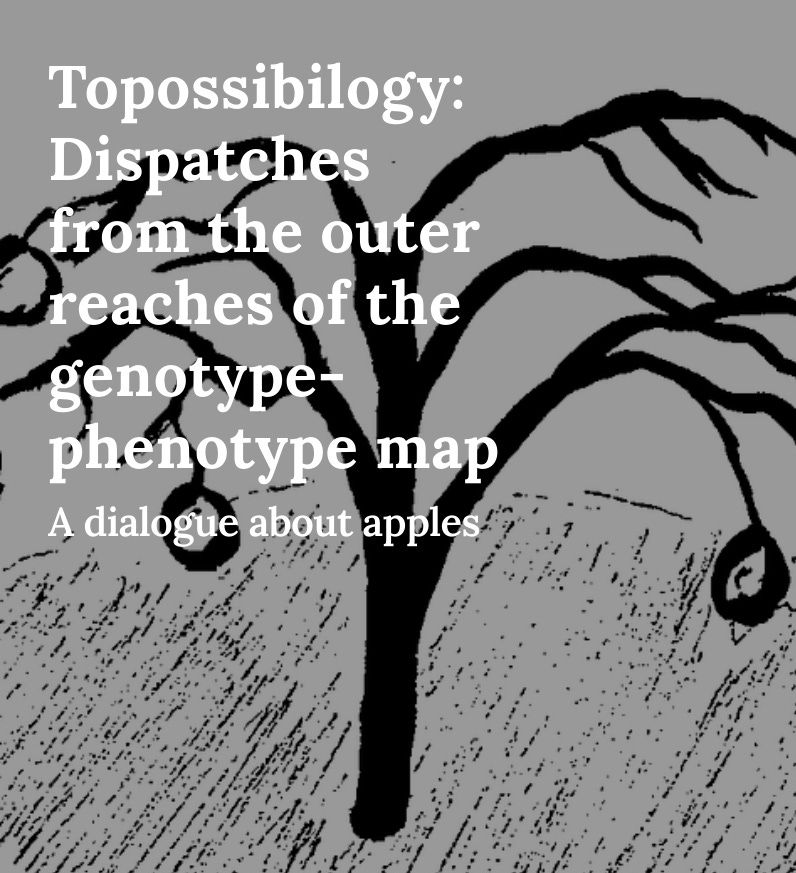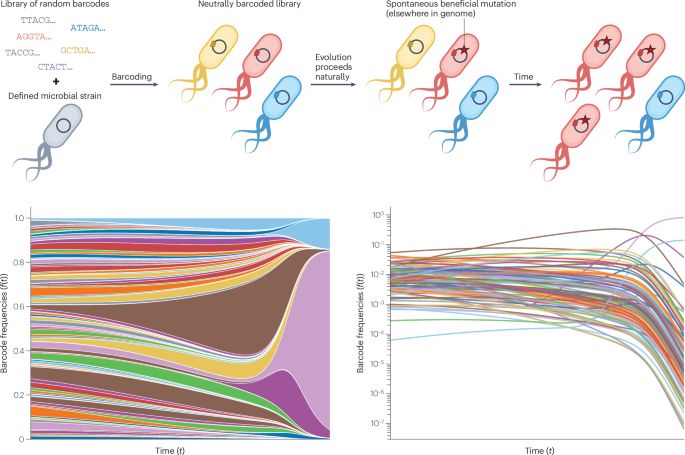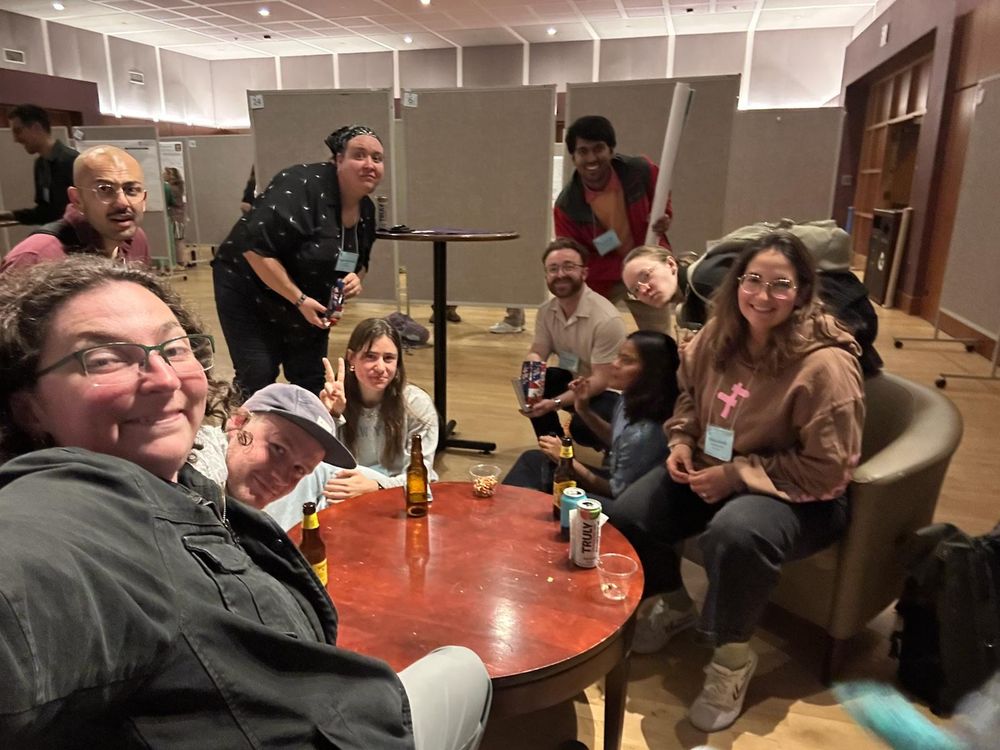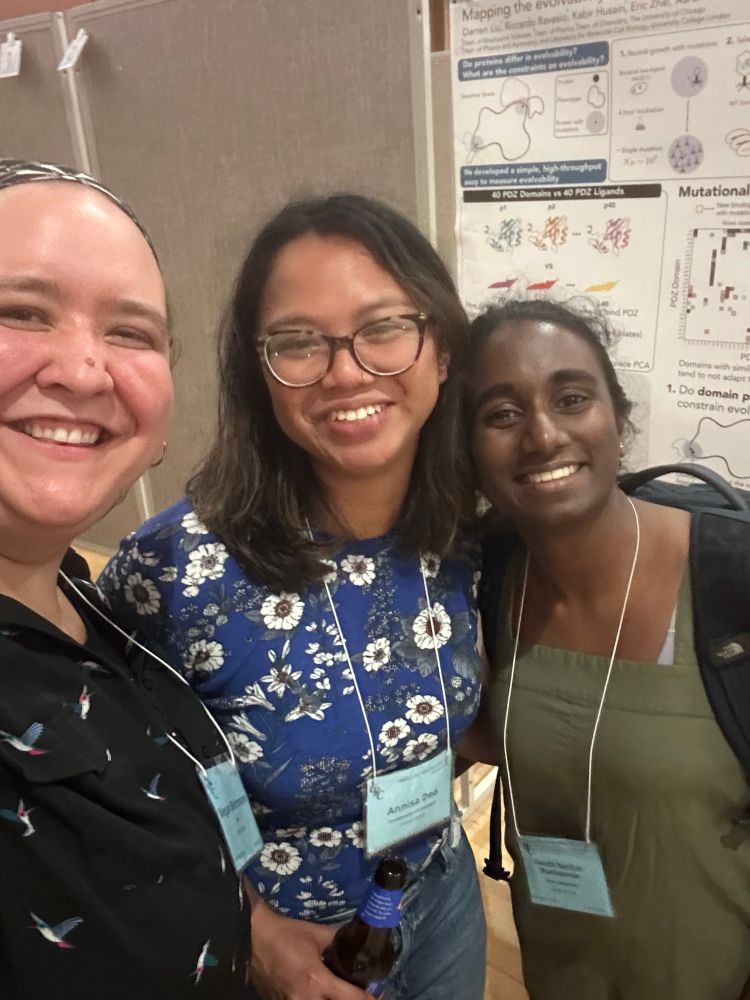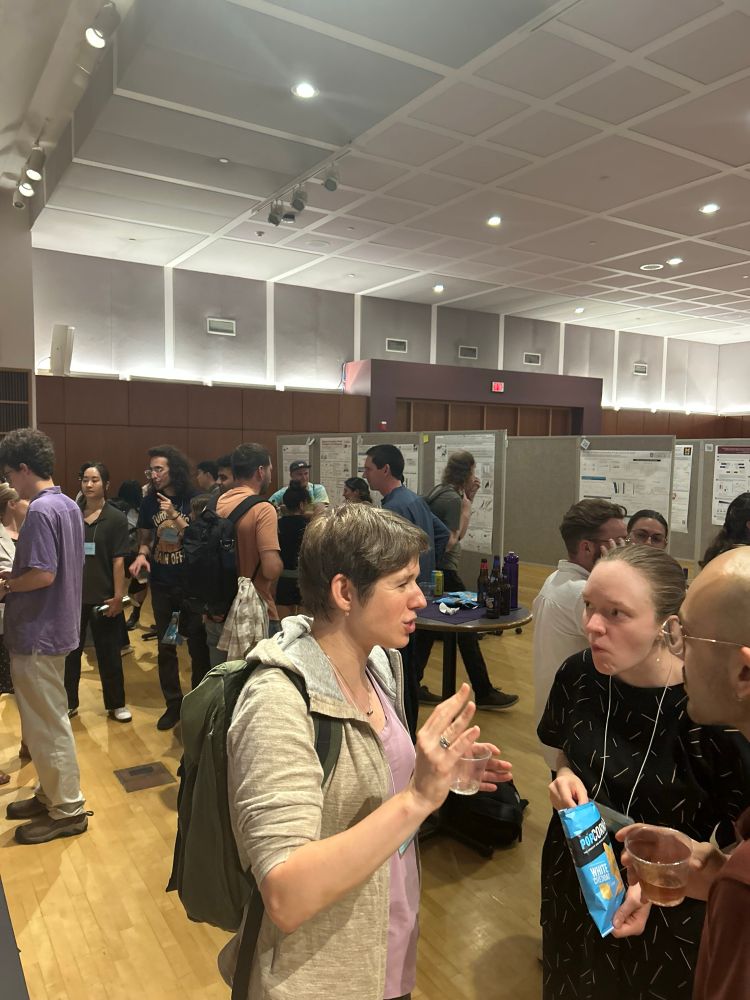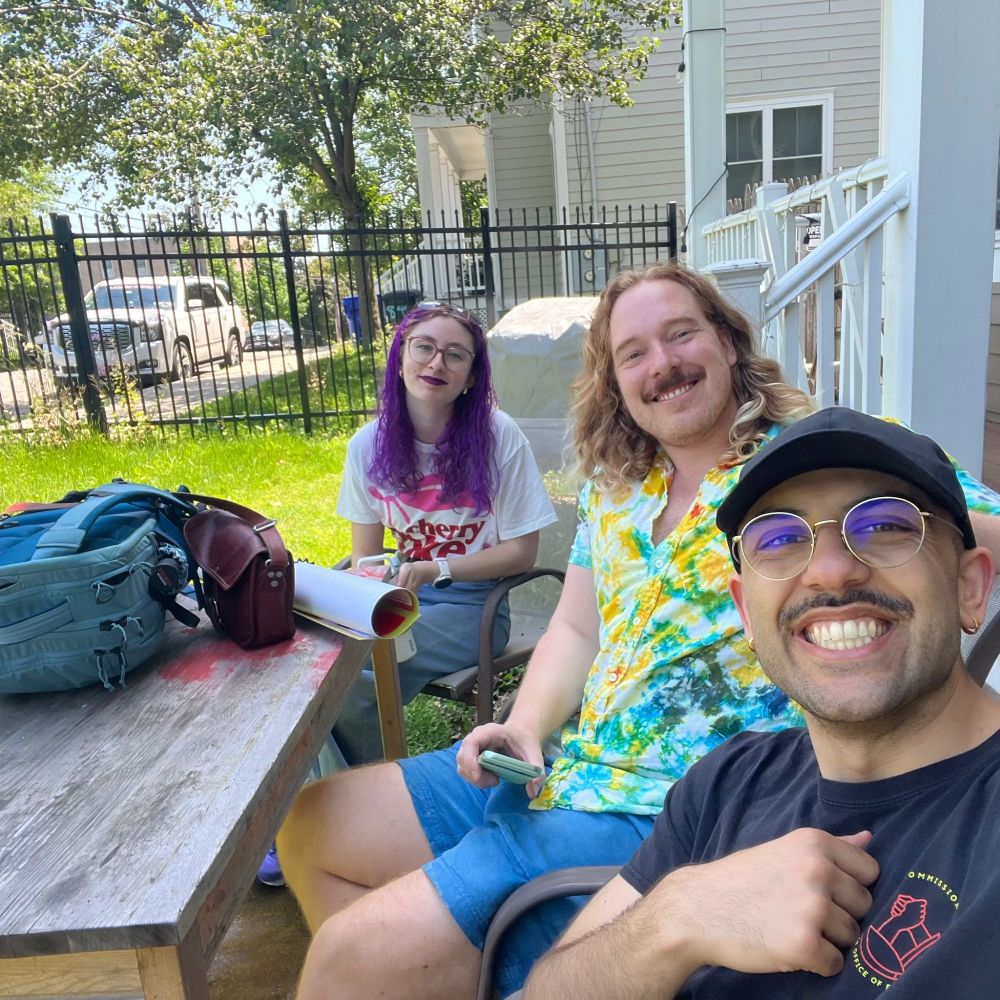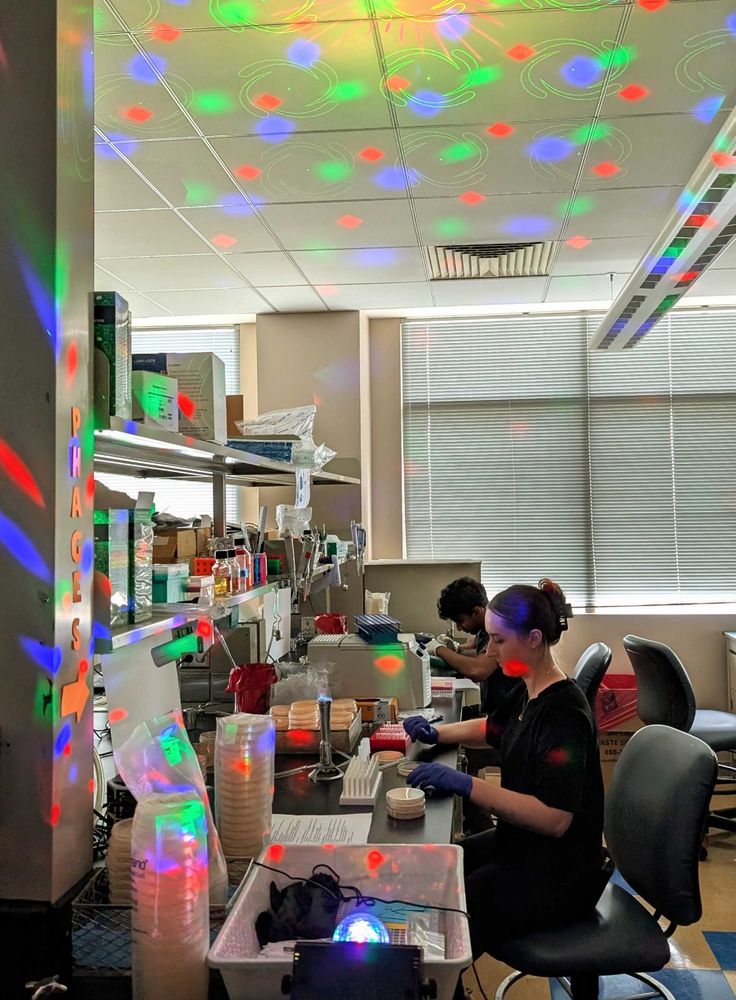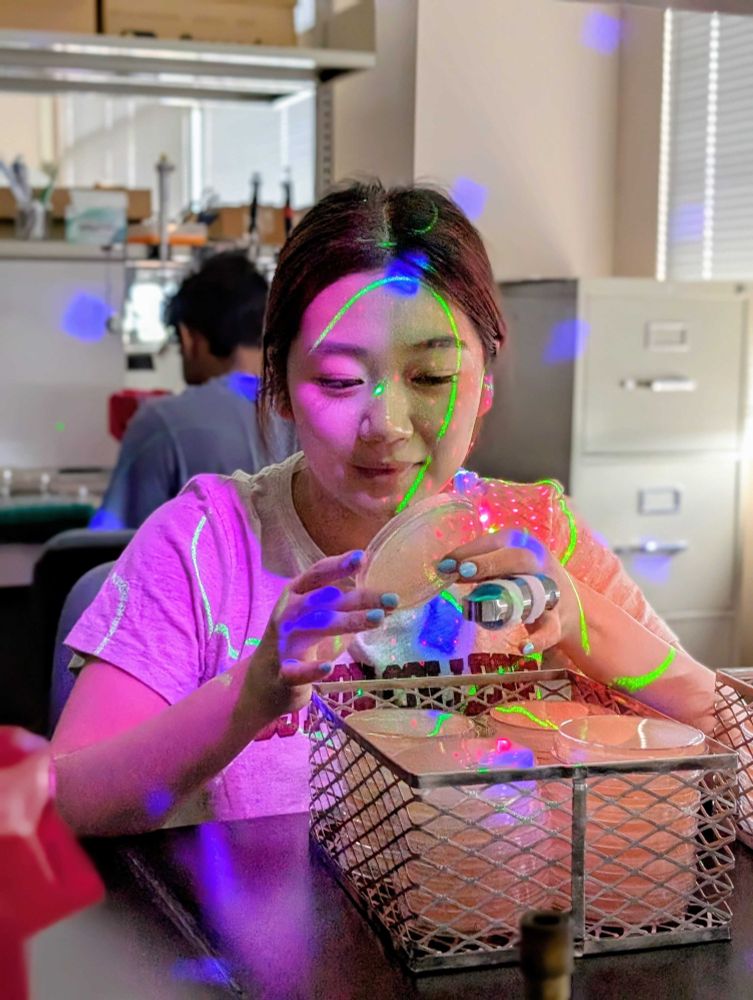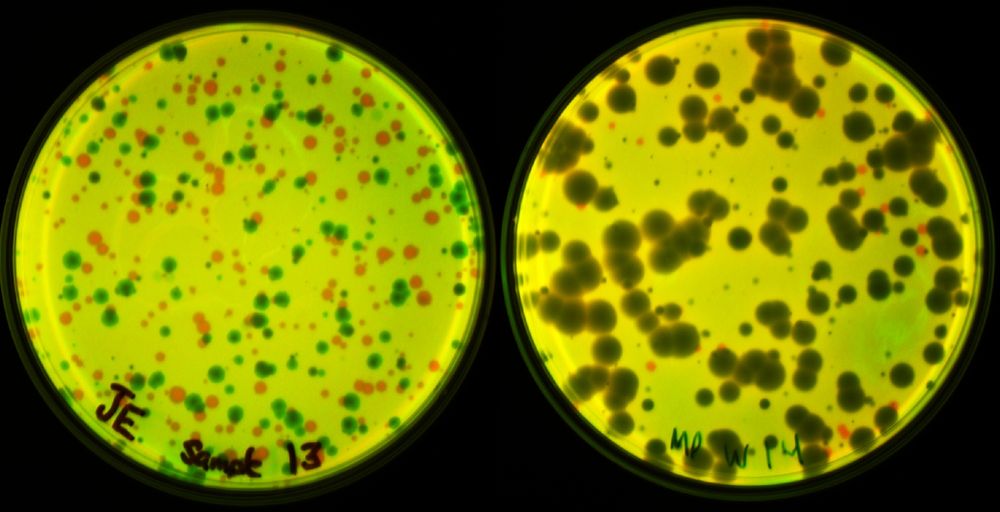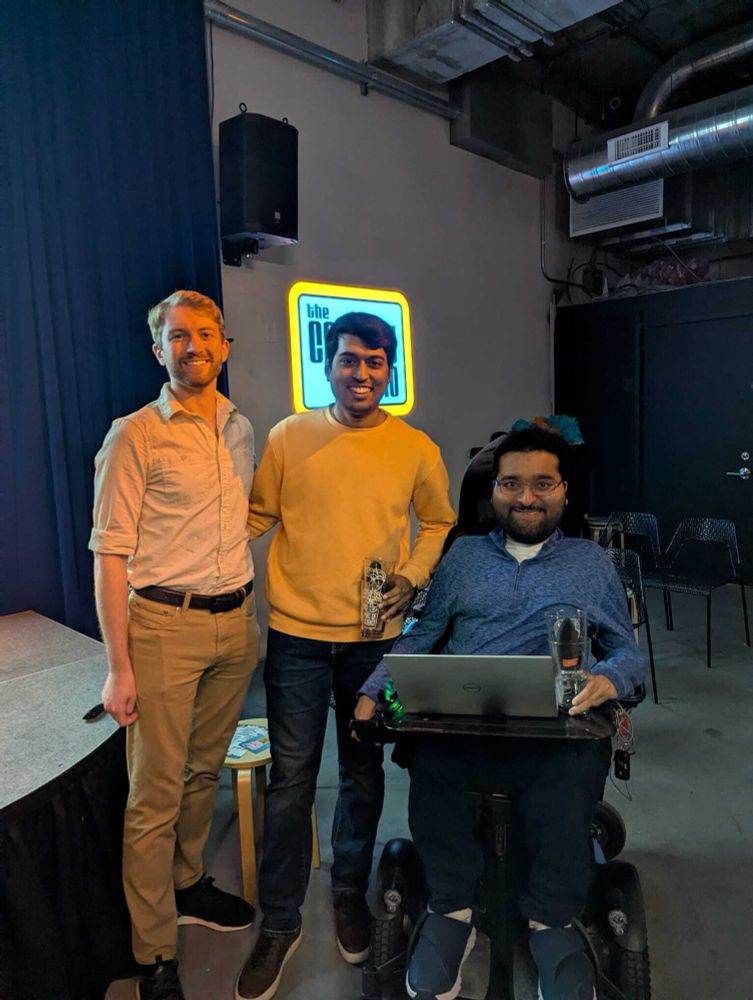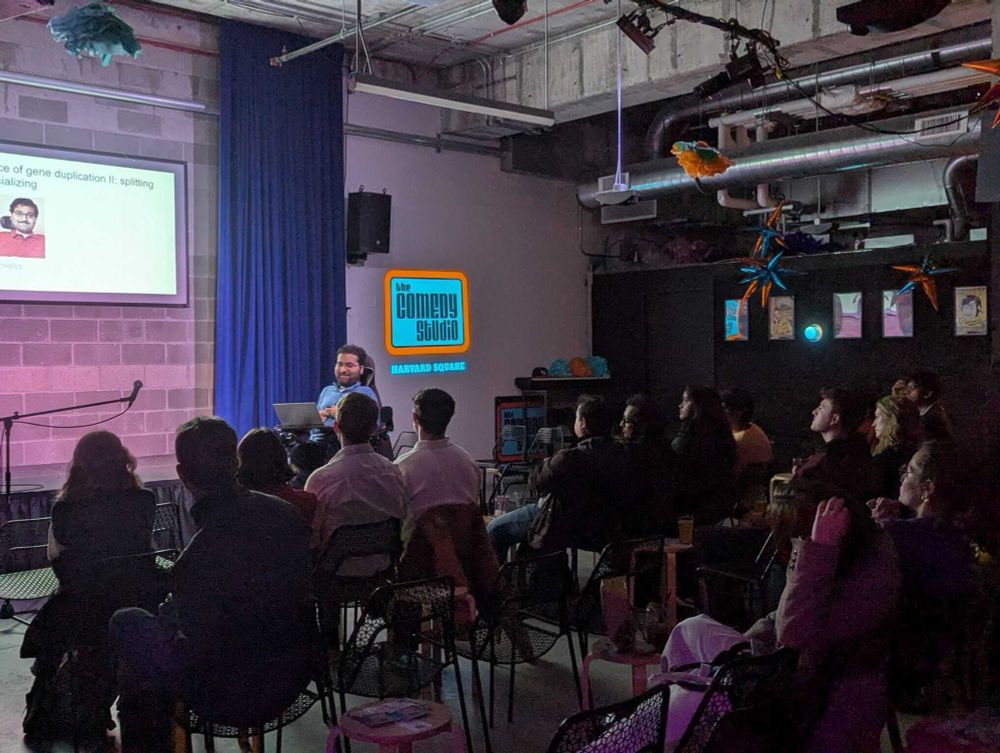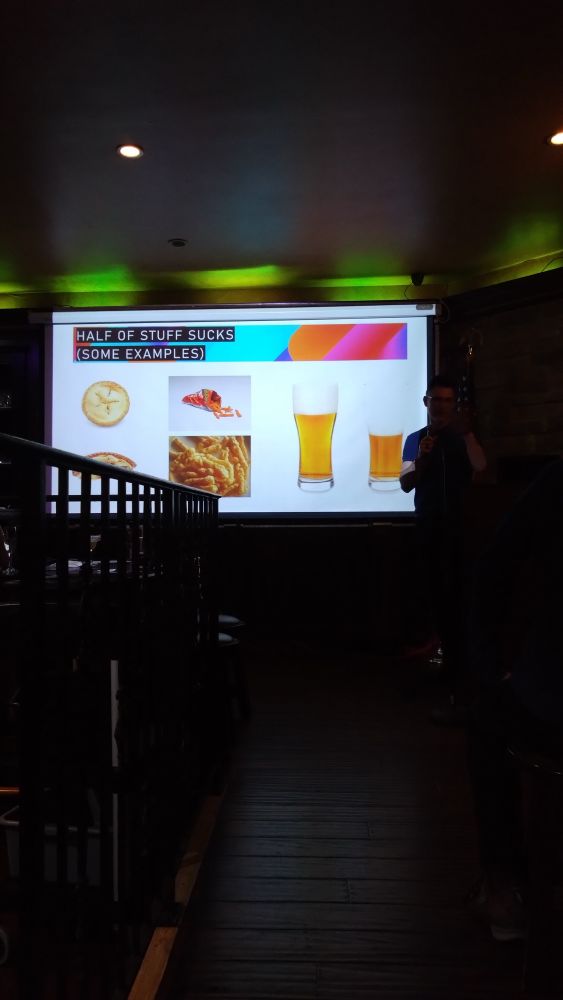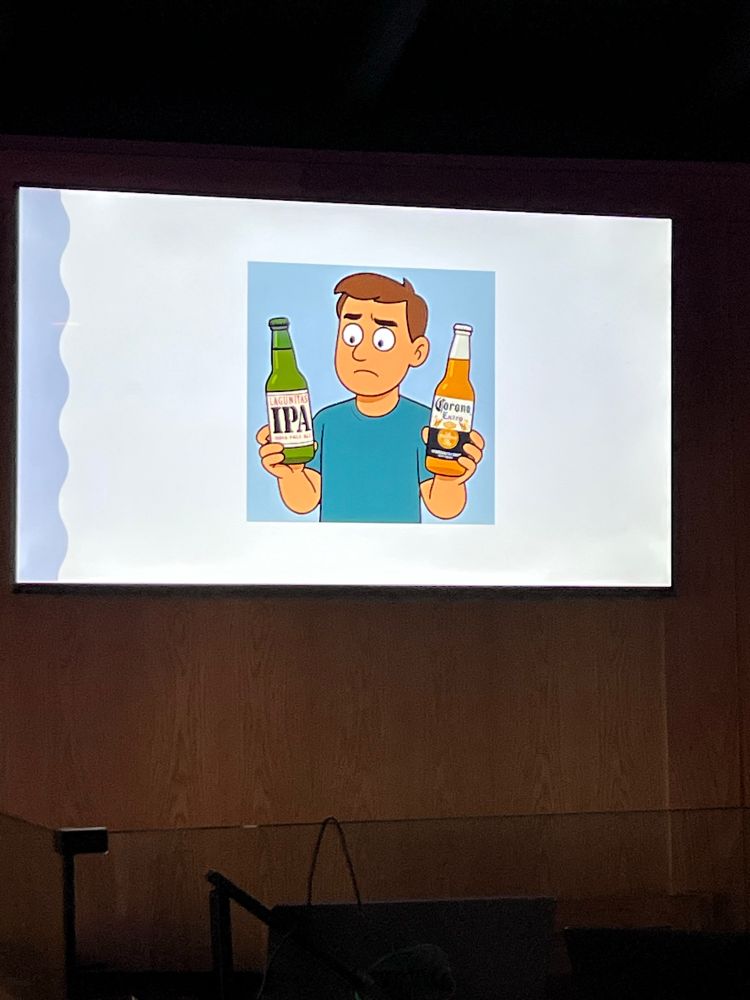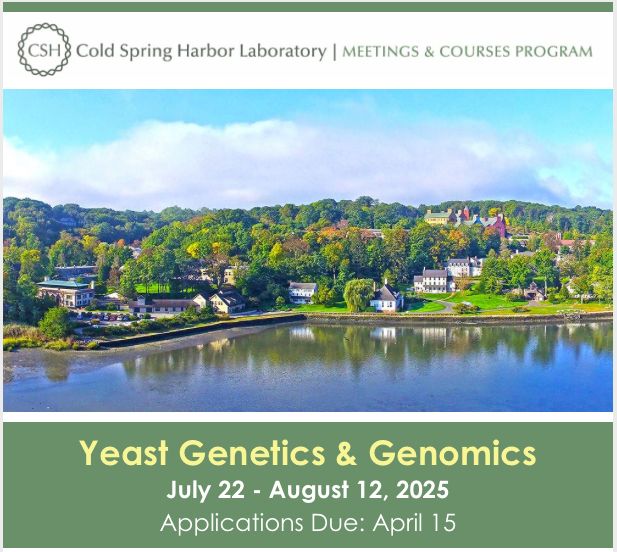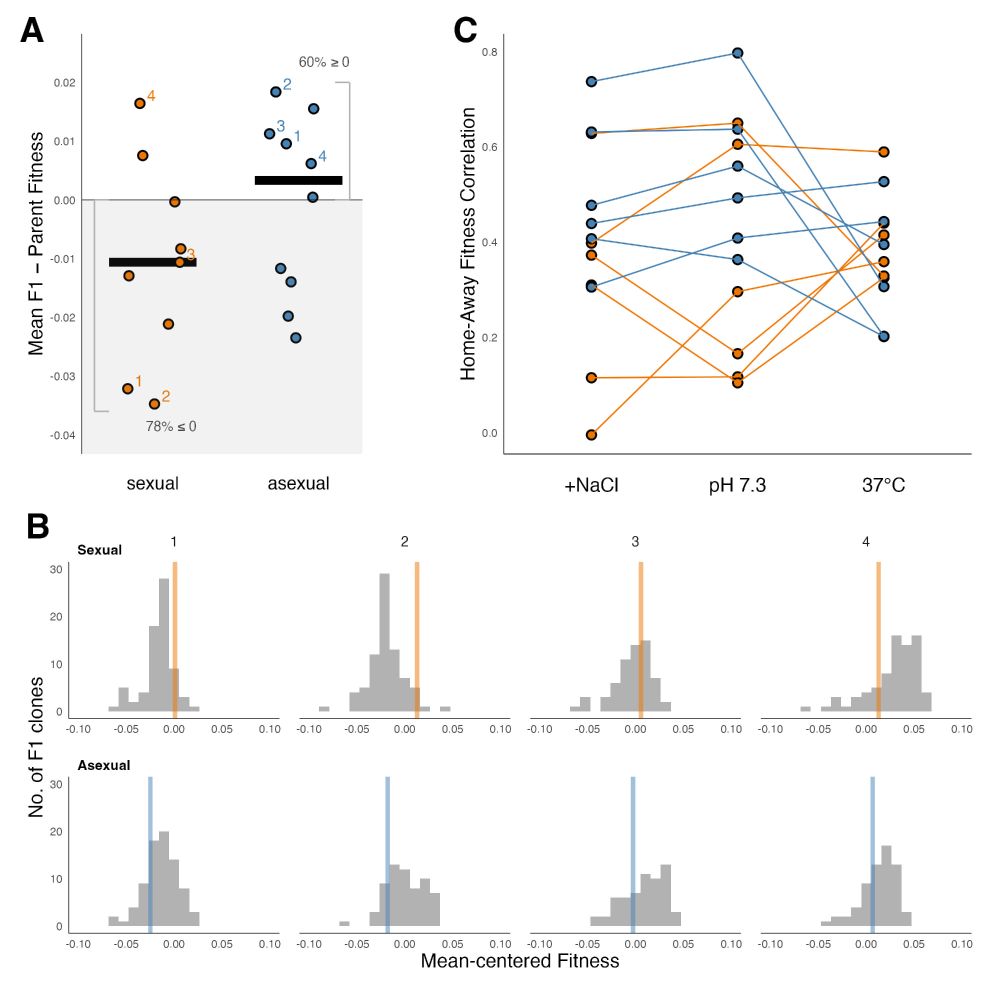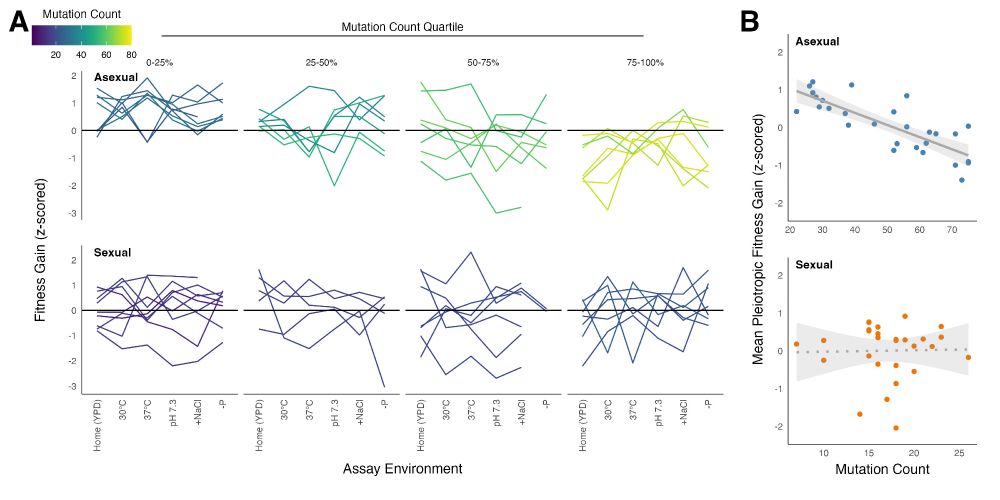Shreyas Pai
@theshreyaspai.bsky.social
780 followers
1.8K following
16 posts
Systems Biology PhD Student @Harvard, Labs of Michael Desai @mmdesai.bsky.social & Michael Baym @baym.lol | Trinity College Cambridge Alum | Evolution & Microbes
Posts
Media
Videos
Starter Packs
Reposted by Shreyas Pai
Reposted by Shreyas Pai
Joao Ascensao
@joaoascensao.bsky.social
· Aug 21

Frequency-dependent fitness effects are ubiquitous
In simple microbial populations, the fitness effects of most selected mutations are generally taken to be constant, independent of genotype frequency. This assumption underpins predictions about evolutionary dynamics, epistatic interactions, and the maintenance of genetic diversity in populations. Here, we systematically test this assumption using beneficial mutations from early generations of the Escherichia coli Long-Term Evolution Experiment (LTEE). Using flow cytometry-based competition assays, we find that frequency-dependent fitness effects are the norm rather than the exception, occurring in approximately 80\% of strain pairs tested. Most competitions exhibit negative frequency-dependence, where fitness advantages decline as mutant frequency increases. Furthermore, we demonstrate that the strength of frequency-dependence is predictable from invasion fitness measurements, with invasion fitness explaining approximately half of the biological variation in frequency-dependent slopes. Additionally, we observe violations of fitness transitivity in several strain combinations, indicating that competitive relationships cannot always be predicted from fitness relative to a single reference strain alone. Through high-resolution measurements of within-growth cycle dynamics, we show that simple resource competition explains a substantial portion of the frequency-dependence: when faster-growing genotypes dominate populations, they deplete shared resources more rapidly, reducing the time available for fitness differences to accumulate. Our results demonstrate that even in a simple model system designed to minimize ecological complexity, subtle ecological interactions between closely related genotypes create frequency-dependent selection that can fundamentally alter evolutionary dynamics. ### Competing Interest Statement The authors have declared no competing interest.
doi.org
Reposted by Shreyas Pai
Tera Levin
@teralevin.bsky.social
· Aug 5

Hypermutable hotspot enables the rapid evolution of self/non-self recognition genes in Dictyostelium
Cells require highly polymorphic receptors to perform accurate self/non-self recognition. In the amoeba Dicytostelium discoideum, polymorphic TgrB1 & TgrC1 proteins are used to bind sister cells and e...
www.biorxiv.org
Reposted by Shreyas Pai
Reposted by Shreyas Pai
Duhita Sant
@duhitasant.bsky.social
· Jul 22

Eco-evolutionary robustness of wild bacterial communities to experimental perturbation
Abstract. Most knowledge about bacterial evolution and ecological interactions comes from laboratory studies. One difference between the wild and most labo
academic.oup.com
Reposted by Shreyas Pai
Joao Ascensao
@joaoascensao.bsky.social
· Jul 21
Reposted by Shreyas Pai
Reposted by Shreyas Pai
Reposted by Shreyas Pai
Reposted by Shreyas Pai
Reposted by Shreyas Pai
Michael Baym
@baym.lol
· May 29
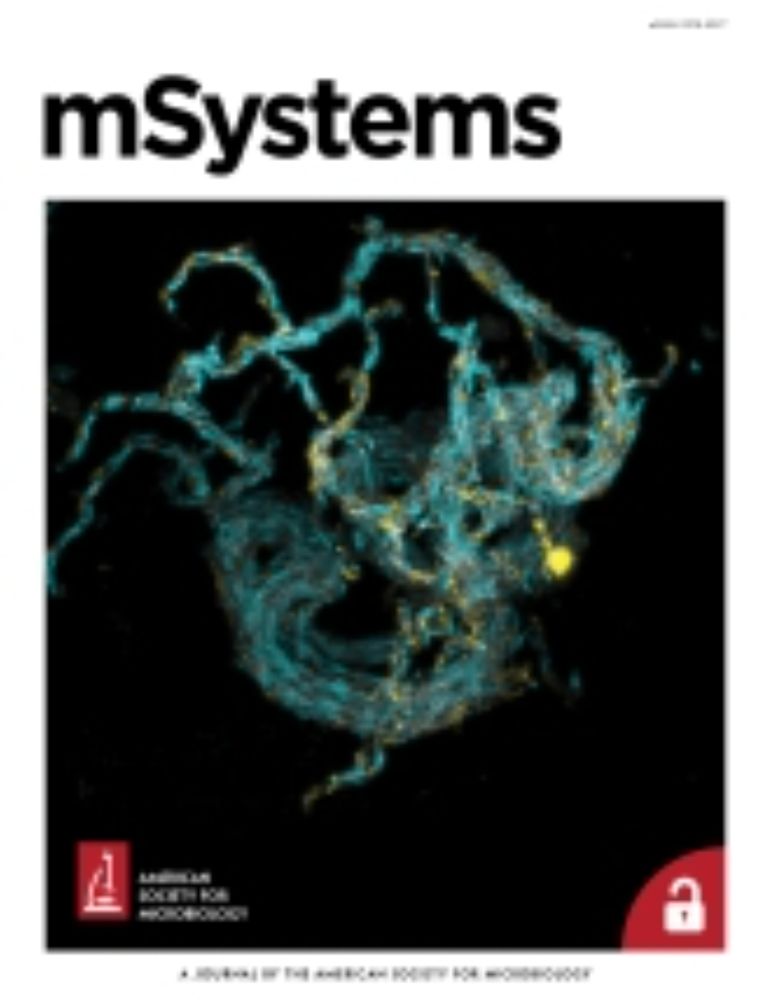
Phage DisCo: targeted discovery of bacteriophages by co-culture | mSystems
In this work, we describe a targeted phage discovery method that allows immediate
isolation of phages with specific traits. Currently, to find a phage with specific
properties, huge libraries of phage...
journals.asm.org
Reposted by Shreyas Pai
Reposted by Shreyas Pai
Liana Merk
@bacteriyay.bsky.social
· May 24

Prevalence of Group II Introns in Phage Genomes
Although bacteriophage genomes are under strong selective pressure for high coding density, they are still frequently invaded by mobile genetic elements (MGEs). Group II introns are MGEs that reduce h...
www.biorxiv.org
Reposted by Shreyas Pai
Reposted by Shreyas Pai
Michael Baym
@baym.lol
· Apr 9
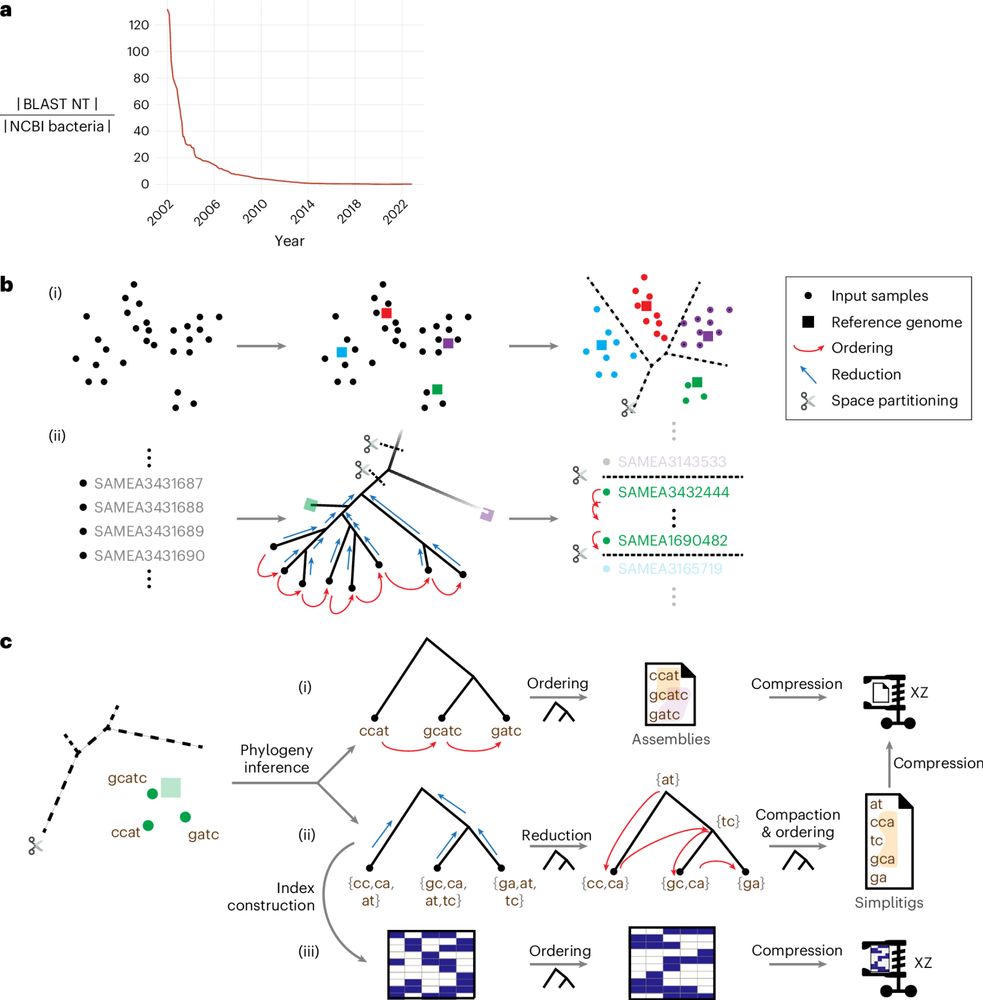
Efficient and robust search of microbial genomes via phylogenetic compression
Nature Methods - Phylogenetic compression achieves performant and lossless compression of massive collections of microbial genomes, facilitating fast BLAST-like search and versatile alignment tasks.
rdcu.be



